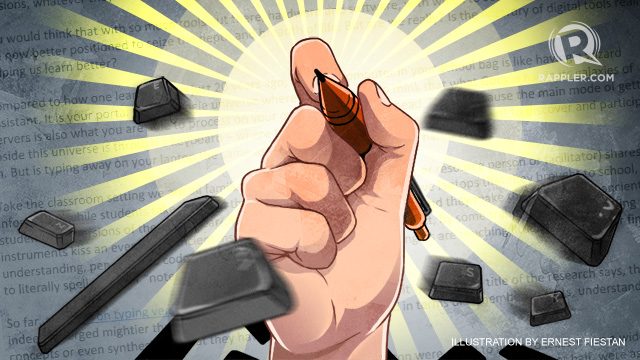SUMMARY
This is AI generated summarization, which may have errors. For context, always refer to the full article.

I think when you get down to it, the whole point of education is for each of us to learn that life is darn short and that we should learn carpe diem or how to seize the day. The classic film, the Dead Poets Society, captures this “unclickable” essence of learning in this scene.
Needless to say, seizing the day is not merely about cloaking your days with instagrams of OOTDs (Outfit of the Day) or whatever trendy thing is punctuating the days of digizens. It is about getting a sense of complexity and abundance out there, beyond the obvious, and diving into it so that you get to cultivate your own passions, whatever they are, and dedicate your life to pursuing and contributing to them.
You would think that with so much tools out there, hardware and software, with which to seize your days and nights, we are now better positioned to seize the depth and breadth of life. But are we really? Is the wizardry of digital tools really helping us learn better?
Compared to how one learned even just 20 years ago, having a computer in your school bag is like having a wizard assistant. It is your portal to the Google universe where it is very easy to think that what Google has in its galaxies of servers is also what you are able to process on your own, with your own head. “Easy” because the main mode of getting inside this universe is through a keyboard – where for the most part, we type things we want to discover and participate in. But is typing away on your laptop the same as writing the notes with your hand?
Take the classroom setting we are all familiar with where someone (teacher or resource person or facilitator) shares information while students take notes. In the days when students did not have laptops that they brought to school, students had versions of the 5,000-year-old writing instruments called pens and they make the tips of those ancient instruments kiss an even more ancient instrument called paper. Upon contact, by some training in reading, writing and understanding, pen slides to code what the writer wills. Now, students fingers are touching little pads meant for fingertips to literally spell out their “notes.”
So far, research on typing versus penned notes has found that penning it wins. As the title of the research says, the pen indeed emerged mightier than the keyboard when people were tested in terms of remembering facts, understanding concepts or even synthesizing what they have just learned.
In the experiments, hundreds of college students in UCLA and Princeton were asked to listen to lectures on a wide range of topics. Half were given laptops (disconnected from the internet) to take notes with and the other half, were asked to use pen and paper.
As expected, typing captured more words from the lectures since typing is faster than taking notes. In fact, those who used their laptops turned out to have copied more of the lecturers’ words verbatim than the ones who took notes by hand. But when they were tested in terms of understanding relationships between the ideas introduced in the lectures, the ones who handwrote their notes fared much better. And even when they were tested again after being reminded to take notes that summarize the lecture and not record it word-for-word, the ones who typed on the keyboard still did not reflect a better understanding of the lectures, compared to the ones who used their hands to take notes.
In fact, the researchers found that the more verbatim words were recorded, the weaker the understanding of the note taker. Even when asked a week later, the retention and understanding of the lecture was still stronger among those who wrote notes.
The researchers think that since writing with your hand is a relatively more tedious and slow than typing, your brain does a different kind of mental digestion – able to sift through while listening and then recording your own understanding with your own cues and symbols. When typing and capturing lectures verbatim, there is really no difference with just having a copy of the lecture so you don’t really make any special effort to understand.
Of course, there are tablets now with screens that you can write on but they are still very pricey and most of the time, the tablet would still be connected to the internet and there would be distractions as one takes notes.
There seems to be a deep-seated wiring that is enabled by hand when it comes to understanding things. In another study in 2010, kids who wrote words instead of just looking at the letters that made up words showed that their brain connections were “more enhanced.” This is also especially true with writing in languages with characters where those who learned them by hand could recognize the proper orientation of characters even when they were shown as mirror images.
Considering how much of our brain’s sensory parts are devoted to what we feel with our hands, it makes a lot of sense that your hands could really be major portals to understanding. Our hands have always been synonymous with “touch.” But note-taking is not even just plain touching – it is path-finding and path-making all at once, as you interpret the world on your own and mark it for your own understanding. It is your “I am here” spot in the map of knowledge trying to see how it layers on to your own map of understanding.
It seems that “hands on” really gets our “minds-on” learning. – Rappler.com
Add a comment
How does this make you feel?
There are no comments yet. Add your comment to start the conversation.